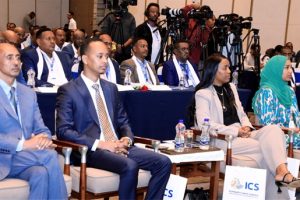
Ethiopia has become high on the agenda of the international community due to major reform measures it has introduced since the election of Dr. Abiy Ahmed as prime minister of Ethiopia. More precisely it took the attention of the international community with the fundamental steps taken by Prime Minsister Abiy to address the root causes of the problems that had been plaguing the country for centuries.
Ethiopia has still continued to take the headlines of major world mainstream media and international organizations that promote human rights and democratic rights , who have continued to hail the progress being made by the reform measures.
One can see the stark differences what the world media and international organizations used to say or report about Ethiopia and what they have been saying or reporting as of today over such fundamental issues of human rights and freedom.
The shift in their reporting did not come out of a sudden. The sea changes introduced by the reformist government were compelling to admit.
For example, Ethiopia had long been labeled as one of the most repressive nation in terms of its human rights or democratic rights abuses. Legal instruments put by the pre-reformist government were blatant and applied only for the sole purpose of repression of political dissidents. The so-called Anti-Terror Law, The Charities and Civic Organizations Law and Information and Mass Media Freedom Act were all designed for nothing but repression and sustaining dictatorial regime in power for ages.
Those and many similar laws have been revised or under revision. The Electoral Board Formation Law was just amended a couple of days ago.
Apart from reviewing repressive laws, reforms are still underway in institutions so as to make the positive changes everlasting and independent of the incumbent, which would fundamentally change the old scenario for good.
With the changes introduced in almost a year time, Ethiopia has proved to be a country of free press where there is no a single journalist imprisoned. It has changed itself into a country where political oppositions are publicly and freely exercised. It is really a wonderful achievement to see all opposition political parties, some of
whom former foreign-based political organizations, including some engaged in armed political struggle, and media, all of whom had been labeled by the law of the nation as terrorists are now freely exercising their rights.
The sea changes are not only extraordinary, but highly glorious capable of changing the images of the country that were badly tarnished by former records of human and democratic rights. Some of the changes even have been considered by the international community as fundamental ones that would set an exemplary among Africans.
Be that as it may, what has been in store is still too much and requires more time. The most important thing is that the reformist government has set in action. It is still striving to make institutional reforms to guarantee the sustainability of the positive changes.
In this regard, as a ground breaking move, the government has succeeded so far in reforming the security apparatus, which had long been used for repression. The reform measures in such key institutions as defence force, federal police, prisons administration, the intelligence agency are to be hailed. Other key government offices such as the Attorney General and Ministry of Revenue have also been reformed that they have started offering good services to the public. As part of the reform measures, also, new institutions such as Ministry of Peace and Commission for Arbitrating Identity and border-based problems have been established and started functioning.
One cannot deny that all these were done within a year. While the government is working hard to solve age-old problems in a permanent and sustainable manner, it is really pity to see some problems as extensions of old detrimental practices.
The government for one thing cannot achieve the desired goals immediately and by its own. Political parties and activists should stand by its side for the smooth transformation to the satisfaction of all Ethiopians. Even if disagreements erupt among the political elites, they have to turn their faces towards a round-table discussion instead of confrontations.
That is the only way that Ethiopians can succeed to achieve their reform projects and be a model among Africans as many international community have speculated.
The Ethiopian Herald April 7/2019





